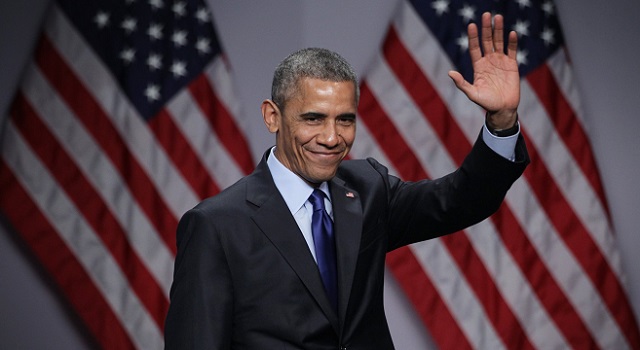
Washington, United States | AFP | Barack Obama’s trailblazing presidency, a first for an African-American, began 10 years ago Sunday, a historic moment that some believed ushered in a post-racial America.
But given the racial politics amplified in the era of successor Donald Trump, the hope and change of 2009 has led to mixed results.
Advances in gender and racial equality have been unmistakeable over the past decade, and continue today, with multiple men or women of color — notably senators Cory Booker and Kamala Harris — likely to seek the Democratic presidential nomination in 2020.
But the Obama years also have given way to a more combative, partisan cultural environment and a Trump presidency — about to enter its third year — that has left politics and society bruised and divided.
As the nation marks the birthday this week of slain black civil rights icon Martin Luther King Jr, congressional Republicans are struggling over what to do about an unapologetic white nationalist in their midst who was recently re-elected in Iowa.
Congress is the most diverse it has ever been, but that is due almost exclusively to the rainbow coalition of Democrats, including the record numbers of women, blacks and Hispanics elected last November.
The Republican Party has mostly failed to meet the challenge of a more inclusive union.
Trump has done his share of antagonizing minority voters. In 2017 he sparked outrage by claiming there were good people “on both sides” at a violent white nationalism rally in Charlottesville, Virginia.
One of his fiercest defenders, anti-immigration congressman Steve King, has received a bipartisan rebuke for his recent remarks defending white supremacy.
House Democrat Joyce Beatty said that while it felt “exhilarating” to witness Obama’s inauguration in 2009, she has been discouraged by King’s remarks and the tone set by Trump.
The president “has not been held accountable for those divisive things,” Beatty, a leader in the Congressional Black Caucus, told AFP in an interview.
“I am not surprised” that House Republicans have few women and minorities in their ranks, she added. “They’re going backwards as we are advancing.”
– Republicans must ‘do more’ –
Race-related tensions have risen. A Pew Research Center study showed the share of Americans who believe racism is a “big problem” doubled from 2011 to 2017, to 58 percent, mostly among Democrats.
While Republicans pride themselves as being the party of Abraham Lincoln, the Civil War-era president who ended slavery, there is only one black Republican in the 435-seat House of Representatives, compared to 55 African-American Democrats.
The Senate too has a single black Republican.
“I fully believe that the Republican Party needs to do more to reach minorities and women and young people,” said House Republican Cathy McMorris Rodgers, who until this month was the highest ranking GOP woman in Congress.
Trump regularly professes to be helping African Americans, either by reducing black unemployment or signing a prison reform law that received broad bipartisan backing.
But as he ran for president, he promoted the birther conspiracy that Obama was born in Africa, and during his presidency some state legislatures have moved to suppress votes of minorities, said Lara Schwartz, a government professor at American University.
 The Independent Uganda: You get the Truth we Pay the Price
The Independent Uganda: You get the Truth we Pay the Price





